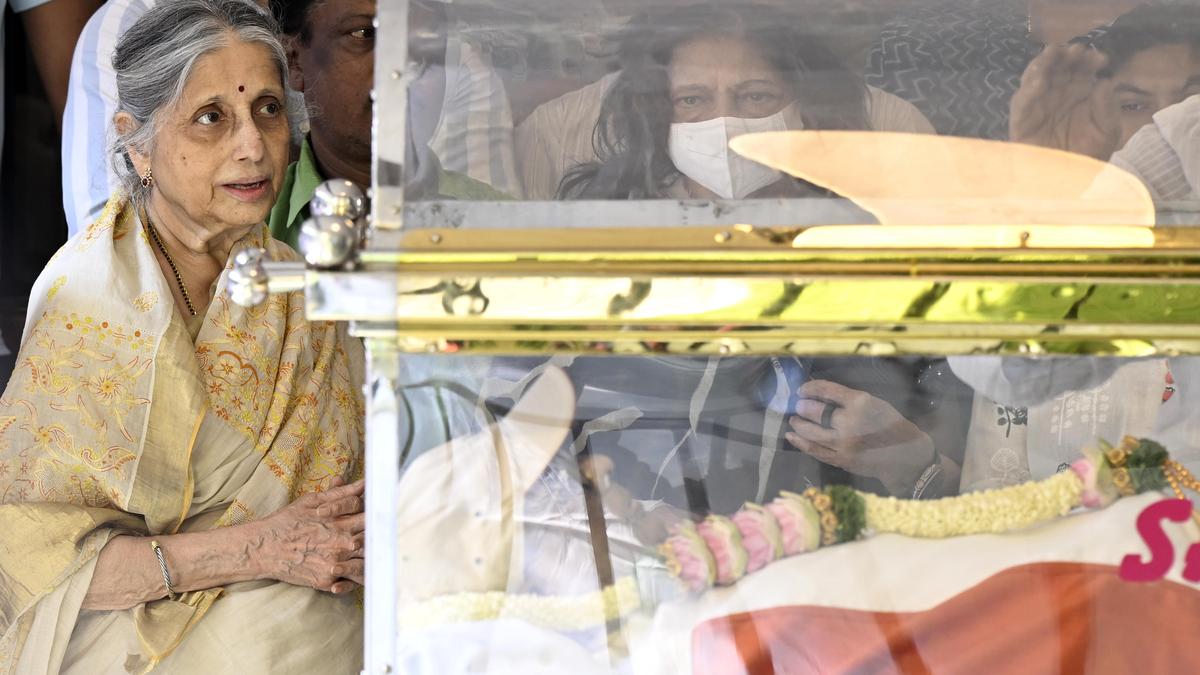
S.M. Krishna: The man who wanted to transform Bengaluru into Singapore
The Hindu
Former Chief Minister of Karnataka S.M. Krishna, who passed away on Tuesday, aspired to remake Bengaluru on the lines of the South Asian economic giant Singapore. That statement, which presented his vision for the city, equally lauded and criticised, probably encapsulates his legacy in Bengaluru, a city many credit him to have put on the global map.
Former Chief Minister of Karnataka S.M. Krishna, who passed away on Tuesday, aspired to remake Bengaluru on the lines of the South Asian economic giant Singapore. That statement, which presented his vision for the city, equally lauded and criticised, probably encapsulates his legacy in Bengaluru, a city many credit him to have put on the global map.
His association with the city was so strong, that many believe it was one of the reasons for his defeat in the 2004 Assembly polls, that he shifted to Chamarajpet, a city constituency in 2004, when he went to polls after his tenure as Chief Minister. Earlier, he contested from Maddur, his home town in Mandya district.
Mr. Krishna gave political impetus to the evolution of Bengaluru as the IT-BT capital, which had begun by the time he became Chief Minister in 1999. “He embraced it and became its political face. He understood the needs of the industry. Corporate heads and world leaders were comfortable with him,” said V. Ravichandar, who was a member of the Bangalore Agenda Task Force (BATF) formed during Mr. Krishna’s tenure. “That was the time when world leaders landed in Bengaluru first and then went to Delhi,” he recounted.
His true legacy for Bengaluru would be two-fold - first was the many mega infrastructure projects in the city that he initiated, in keeping with the needs of the burgeoning city; second was BATF, which saw the corporate sector collaborate with the State government for city administration for the first time, an idea that remains contested to this day.
The Outer Ring Road, a stretch of which has now become one of the major economic corridors of the country, the international airport in Devanahalli, and the decision to go ahead with metro rail for the city, apart from several flyovers and underpasses that dot the city today, were Mr. Krishna’s contribution to city infrastructure. The airport and the metro rail, however, took off after his tenure ended. Looking back, two decades later, the only big ticket infrastructure project that has been cleared and work begun after Mr. Krishna’s tenure is the Bengaluru Suburban Rail Project (BSRP) in 2022, putting into perspective his contribution to the city’s infrastructure.
The BATF led by Infosys co-founder Nandan Nilekani was a sort of lateral entry model that saw corporate leaders participate in shaping public policy. Mr. Krishna also had Infosys founder N.R. Narayana Murthy chair a committee on the Bengaluru International Airport. BATF was instrumental in making the city dustbin free and introducing door-to-door garbage collection, brought in the “trust and verify” Self Assessment Scheme for property tax, and Nirmala toilets, among others. However, the constitution of BATF and most reforms it introduced were opposed by a section.
“Mr. Krishna’s statement on transforming Bengaluru to Singapore, which was mocked then, essentially indicated improving public services,” said K. Jairaj, who was secretary, BATF, and held key posts in the city during Mr. Krishna’s tenure.











